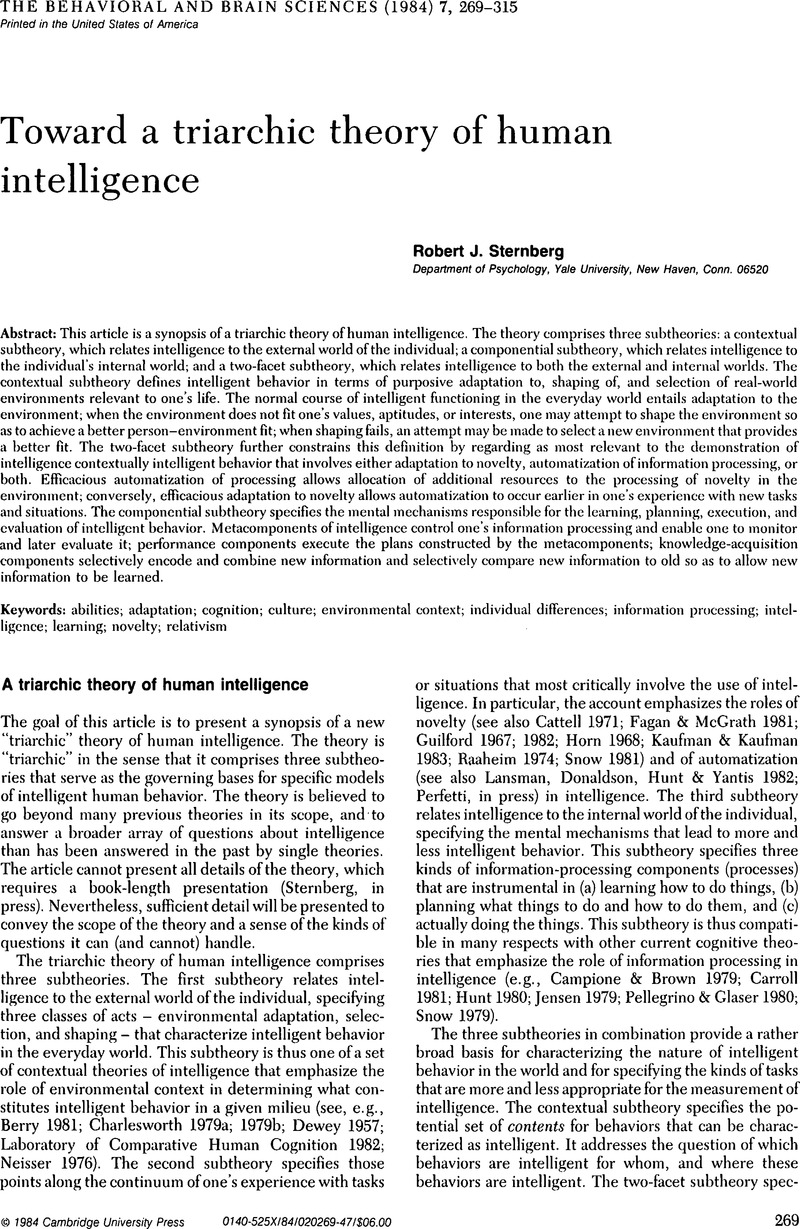Berry, J. W. (
1972) Radical cultural relativism and the concept of intelligence. In:
Mental tests and cultural adaptation, ed.
Cronbaeh, L. J. &
Drenth, P. J. D..
Mouton. Condensed and reprinted in
Culture and cognition: Readings in cross-cultural psychology, ed. J. W. Berry & P. R. Dasen. Methuen, 1974. [JWB, taRJS]
Google Scholar 